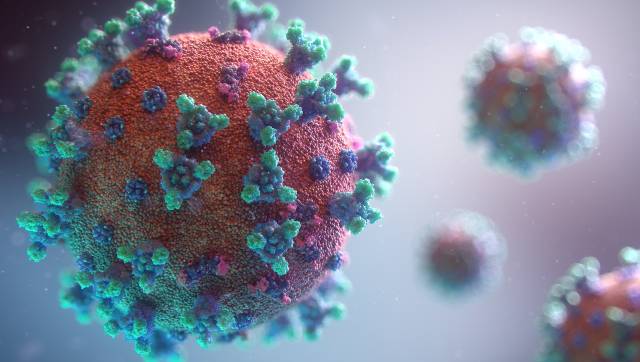Since the start of COVID-19 pandemic, it has been apparent that the disease affects some people more than others. While some of this risk can be attributed to comorbidities, there have been severe cases in otherwise healthy and young people that have led scientists to look for a possible genetic and molecular explanation. Earlier in the year, some studies had suggested that DNA polymorphism in ACE2 gene (multiple types of ACE2) and variations in immunity determining genes could be linked to a higher risk factor. Now, at least three different studies have been released that talk about the effect of various genes on how severely will COVID-19 impact an individual. Out of these, two studies published in the Journal Science suggest that a person’s genetic makeup and presence of autoantibodies affect how their immune system responds to the novel coronavirus and if they are at a higher risk of developing severe complications when infected with the virus. The research studies, led by Dr Jean-Laurent Casanova, professor investigator at the Howard Hughes Medical Institute and head of the St Giles Laboratory of Human Genetics of Infectious Diseases at the Rockefeller University, were a part of the COVID Human Genetics Effort, an international project spanning about 100 hospitals and more than 50 genetic sequencing hubs. The third study, conducted at Tel Aviv University, Israel, indicates that errors in two genes (PiS and PiZ) that code for alpha-1-antitrypsin protein can make a person prone to severe COVID-19. The twin studies In these studies, the scientists looked for inborn (since birth) errors in type 1 IFN, which is a cytokine (immune system molecules) involved in innate immunity and in fighting viral infections. The study began in March with about 500 patients with severe COVID-19, However, now over 3,000 patients with severe coronavirus disease are enrolled in the study. Looking at a group of 659 patients, the research group found that about 23 of them carried errors in genes that code for the production of IFN 1. Errors in the same genes have previously been linked to the risk of life-threatening flu pneumonia. As per a news release by the Howard Hughes Medical Institute, without the full complement of antiviral molecules, a person’s body would not be able to fight the disease well. The findings of this study led the researchers to suspect that other problems in interferons (non-inborn) may also be present in some patients like if the interferons were somehow destroyed by autoantibodies (antibodies formed against and damaging the body’s own cells). In the second study, 101 patients (out of 987) with severe COVID-19 were found to have autoantibodies against IFN1. These antibodies keep IFN1 from performing its action. Interestingly, autoantibodies were not found in those with mild COVID-19 and about 94 percent of all patients with autoantibodies were men. Dr Casanova and team suspect that the genes for these antibodies may be present on the X chromosome. Since women have two X chromosomes, they will be safer; if they have only one copy of the faulty gene, the other copy on the second X chromosome will cover for some of the side effects. The same can’t be said for men who have only one X chromosome. Tel Aviv study Studying data from 67 countries including the US, the UK, Italy, Spain, South East Asia and Africa, the researchers found that the presence of faulty PiZ and PiS genes and a deficiency of alpha1-antitrypsin has a direct correlation with the risk of severe COVID-19 in a population. Alpha1-antitrypsin protein deficiency has earlier been linked to lung damage due to inflammation. The findings of the study published in The FASEB (Federation of American Societies for Experimental Biology) Journal indicate that the mutated gene was found more commonly in areas where more deaths had occurred due to COVID-19, for example, Lombardy and Italy, as compared to areas with comparatively lower mortality rates like some parts of Africa and Southeast Asia. For more information, read our article on COVID-19. Health articles in Firstpost are written by myUpchar.com, India’s first and biggest resource for verified medical information. At myUpchar, researchers and journalists work with doctors to bring you information on all things health.
Studying data from 67 countries, the researchers found that the presence of faulty PiZ and PiS genes and a deficiency of alpha1-antitrypsin has a direct correlation with the risk of severe COVID-19 in a population
Advertisement
End of Article


)

)
)
)
)
)
)
)
)



